The 12th Annual CamTESOL Conference was held at the Institute of Technology Cambodia (ITC). The conference ran all day on Saturday 20 February and the morning only of Sunday 21 February 2016. The theme of the conference was Promoting autonomy in English language teaching and learning.
The conference was co-opened by H.E. Minister Hang Chuon Naron of the Ministry of Education, Youth and Sport (MoEYS), H.E. William A. Heidt, Ambassador Extraordinary and Plenipotentiary of US Embassy to the Kingdom of Cambodia, and Mr Simon Fellows, Charge d’Affairs A.I. of Australian Embassy to the Kingdom of Cambodia. Registration for the conference totalled 1,725, among whom 685 participants came from 34 countries specifically for the event. There were 350 provincial teachers at the conference sponsored by various individual and institutional donors.
The CamTESOL-UECA Regional ELT Research Symposium was held at the Cambodian Korean Cooperation Center (CKCC) all day on Friday 19 February. It was attended by 221 participants from 18 countries with 59 presentations given. Notably, the Symposium attracted high quality researchers including PhD students, researchers and professors. More than 50% of the participants were resident in Southeast / East Asia, which made the Symposium truly regional.
The CamTESOL-NEAS Regional ELT Leadership Forum was held at the Cambodiana Hotel on the afternoon of Friday 19 February. It was attended by 101 participants from 12 countries. Most of the attendants are managers and leaders in the ELT field from Southeast / East Asia. This forum has provided a platform for regional managers and leaders to learn and share best practices in ELT management, and provide a networking opportunity.
Additional activities included:
• Orientation Program for teachers from the provinces
• Presenters’ Warm Up Reception
• Educational and Cultural Visits
• Conference Dinner
The conference had a total of over 403 presentations including papers, workshops and posters. The conference speakers include:
| Plenary Speaker | | |
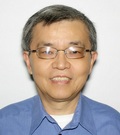 | Dr. Dilin Liu Professor and Coordinator of the Applied Linguistics/TESOL program, English Department
The University of Alabama, USA | Sponsored by: 
|
Main Conference Plenary Presentation
New and Proven Effective Practices in Developing Learner Competency across Platforms
Learner competence consists of various components and may vary across platforms. The ability to use grammar and vocabulary appropriately and effectively constitutes arguably the most important aspect of learner competence across all platforms. Due to a lack of adequate focus on meaning and use, grammar and vocabulary instruction has so far been largely unengaging and ineffective, however. Inspired by contemporary linguistic theories and research findings, some new engaging and effective teaching practices have emerged in the past two decades. This speech focuses on how to enhance learner competence in grammar and vocabulary by introduces some new research/theory-inspired practices as well as some proven successful practices that have been tested by time. In this speech, I begin with a very brief overview of the new understandings about grammar and vocabulary learning and the principles involved. Then I introduce specific examples of engaging and effective teaching practices by focusing on difficult-to-learn/teach grammar and vocabulary usage issues, such as articles, parts of speech, prepositions, tense/aspect, and word collocations. The examples given should not only provide participants with ready-to-use activities but also help them reflect and innovate with new ideas about grammar and vocabulary teaching on their own.
Regional Research Symposium Plenary Presentation
Research on grammar description and teaching: Current trends and future directions
The past two decades have witnessed a revived interest in grammar research and teaching thanks to significant new advancements in contemporary linguistic theories, such as cognitive linguistics, corpus linguistics, and systemic functional linguistics. In addition to perennial issues in research about grammar instruction, such as whether, when, and how to teach grammar, current research has explored, as its focus, fundamental issues about grammar and its knowledge and acquisition. Such research has produced findings that challenge established traditional views about grammar rules being arbitrary and innate and about grammar being a rigid separate domain from vocabulary that is learned mainly as a formal system of abstract rules. This speech offers an overview of the major new foci in grammar research that treats grammar as a usage-based system motivated by our embodied experience and conceptualization, the methodologies used in such research, and the challenges involved. Specific examples will be given, particularly those from corpus- and cognitive-linguistics-based research studies. Future directions in research on grammar instruction will also be discussed.
Dilin Liu is Professor and Coordinator of the Applied Linguistics/TESOL program in the English Department at the University of Alabama. His research focuses on the description and teaching of English grammar and vocabulary using cognitive- and corpus-linguistic approaches. He has published extensively, including six books (five authored and one co-edited) and numerous journal articles and book chapters. One of his recent authored books is Describing and explaining grammar and vocabulary in ELT: Key theories and effective practices (Routledge, 2014). His articles have appeared in many leading international journals, such as Applied Linguistics, Cognitive Linguistics, ELT Journal, English for Specific Purposes, English Today, Foreign Language Annals, International Journal of Applied Linguistics, International Journal of Corpus Linguistics, Journal of English for Academic Purposes, Journal of English Linguistics, Language Teaching Research, Modern Language Journal, Research in the Teaching of English, Studies in Second Language Acquisition, TESOL Journal, and TESOL Quarterly. He has served on the editorial boards of ELT Journal, TESOL Quarterly, TESOL Journal, among others, as well as a reviewer for over twenty international journals and book publishers, such as Cambridge University Press, Palgrave-MacMillan, and Routledge.
| Plenary Speaker | | |
 | Dr. Lawrence Zhang Professor of Linguistics-in-Education and Associate Dean, Faculty of Education and Social Work
University of Auckland, New Zealand | Sponsored by: 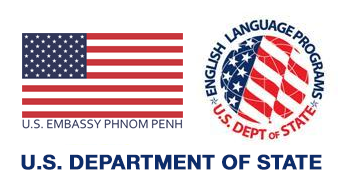
|
Main Conference Plenary Presentation
Learner Agency and Metacognition as Organising Frameworks for Enhancing English Language Teaching and Learning: Person and Context in Praxis across Platforms
Language learning success, to a great extent, depends on learner agency. This is because agency is a prerequisite for learners to take action in order to take charge of their own learning (Gao, 2015). Following Ahearn’s (2001, p. 112) definition that agency is “the socioculturally mediated capacity to act” and Duff’s (2012, p. 414) definition that agency is “people’s ability to make choices, take control, self-regulate, and thereby pursue their goals as individuals leading, potentially, to personal or social transformation”, I argue that the very essence of metacognition successfully captures the dynamics of how learners deploy strategies consciously in managing their learning process for achieving optimal outcomes as a way of exercising their agency. My purpose of discussing language learning through the dual lens of agency and metacognition is to respond to relatively recent criticisms against language learning/learner strategies (LLS) research (e.g., Dornyei, 2005; Ellis, 1994). LLS research was heralded by Stern and colleagues (Stern et al., 1975) and Rubin (1975). I would like to maintain these criticisms are partially correct due to the fact that earlier conceptualisations of LLS did not include agency or metacognition in explicit terms. I intend to contextualise my thinking in relation to how teachers take stock of what research has said about individual persons’ successful language learning and facets of their strategic engagement guided by their metacognition (Cohen & Griffiths, 2015; Oxford, 2014; Zhang, 2010). I posit that learner agency and metacognition can be dual lenses through which teacher and student effort for enhancing English language teaching and learning can be more productively examined (Zhang & Zhang, 2015). Pedagogical endeavours in the classroom and beyond can also be considered in praxis in relation to individual persons and specific contexts across various language learning and language use platforms. I conclude my plenary by showcasing how such repositioning can be typically utilised in real pedagogical practice by front-line teachers and students through a “metacognitively-scaffolded instructional framework” in teaching and learning various skills (e.g., listening, speaking, reading, writing, vocabulary and grammar) via different platforms (e.g., iPads, iPhones, the internet).
Regional Research Symposium Plenary Presentation
Task Complexity, Reasoning and Affective Variables in L2 Writing Production
There has been great interest in researching task complexity in L2 writing in recent years (Ong & Zhang, 2010, 2013). However, insufficient attention has been paid to how task complexity is interacting with other variables, especially numbers of reasoning and affective factors. Using Robinson’s Triadic Componential Framework (Robinson, 2007) as the theoretical basis, this research intends to fill the gap by reporting on how increasing numbers of elements and degrees of intentional reasoning would result in L2 writing production, specifically represented in the texts L2 students produce; it also examines the modulating effect of affective variables, especially motivation and anxiety, on L2 writing. A total of 40 upper-intermediate EFL learners were recruited as participants and they were asked to write a simple essay and a complex argumentative essay. They were also invited to complete a multidimensional writing motivational beliefs questionnaire and a writing anxiety questionnaire. Multiple measures were taken to capture the effects on complexity, accuracy, lexical diversity, and fluency (CALF) of task complexity, numbers of reasoning, and the affective factors on CALF. Implications of the study for task-based syllabus design and writing assessment will be discussed.
Lawrence Jun Zhang, PhD, is a full Professor of Linguistics-in-Education and Associate Dean, Faculty of Education and Social Work, University of Auckland, New Zealand. His teaching includes supervising 16 fulltime PhD students in Applied Linguistics at the moment and delivering courses in systemic functional linguistics in language education. His major interests are in learner metacognition and teacher education, with particular reference to EFL reading and writing. He has published extensively along these lines in leading SSCI-indexed international journals such as Applied Linguistics Review, Modern Language Journal, Language Awareness, Language & Education, Journal of Second Language Writing, English Today, System, Instructional Science, Journal of Psycholinguistic Research, TESOL Quarterly, English for Academic Purposes, Asia Pacific Education Researcher, and British Journal of Educational Psychology. His recent co-edited books include Asian Englishes: Changing Perspectives in a Globalized World (Pearson Education, Singapore, 2012) and Language Teachers and Teaching: Global Perspective, Local Initiatives (Routledge, New York, 2014). He was the sole winner of the “Distinguished Research in TESOL Award” in 2011 for his article, “A dynamic metacognitive systems perspective on Chinese university EFL readers”, published in TESOL Quarterly (2010), 44(2). A Co-Editor of TESOL Quarterly (SSCI) and System (SSCI), he is also a current editorial board member of Applied Linguistics Review (SSCI), Australian Review of Applied Linguistics, Journal of Second Language Writing (SSCI), Metacognition and Learning (SSCI), Writing and Pedagogy, and RELC Journal. He is a member of the American Association of Applied Linguistics (AAAL) and the TESOL International Association (TESOL) and is the past Secretary of the Singapore Association for Applied Linguistics (SAAL) and the current Secretary of the Applied Linguistics Association of New Zealand (ALANZ). In 2016, he was honoured with the recognition by the TESOL International Association (USA) with the award of “50 at 50”, which acknowledged “50 Outstanding Leaders” around the globe in the profession of TESOL when the Association celebrated its 50th anniversary in Baltimore, MD, USA. In November 2016, he was successfully elected to the TESOL’s Board of Directors.
Website: https://unidirectory.auckland.ac.nz/profile/lj-zhang.
Email: lj.zhang@auckland.ac.nz
| Featured Speaker | | |
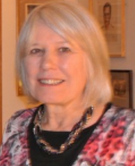 | Prof. Rosie Wickert Chair UTS INSEARCH Academic Board
Australia | Sponsored by: 
|
Regional Research Symposium Plenary Presentation
Getting published
For postgraduate students and novice researchers getting their research articles published can be an overwhelming challenge. Before attempting this task it is important to identify which journals to target, which journals are relevant. How do refereed academic journals function? What are editors looking for and how should you "read" journal referee reports? What questions do you need to ask when considering where to submit a paper for publication?
Prof. Rosie Wickert is Chair, UTS INSEARCH Academic Board. She has wide experience in adult language and literacy education and special interest in policy. When Professor at the University of Technology, Sydney, she actively furthered research in language and literacy education. She was President of the Australian Council for Adult Literacy and has taught language educators in S.E. Asia. Prof. Wickert has extensive experience in journal editing and reviewing papers. For many years, she co-edited of Literacy and Numeracy Studies: an international journal in the education and training of adults.
| Featured Speaker | | |
 | Assoc. Prof. John Macalister Head of the School of Linguistics and Applied Language Studies Victoria University of Wellington
New Zealand | Sponsored by: 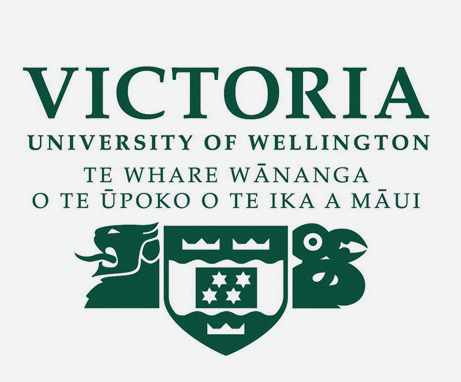
|
Main Conference Featured Presentation
Applying principles in language teaching: A neglected aspect of course books?
For many teachers the course book is the curriculum. Furthermore, because of contextual constraints such as those imposed by an external examination, the course book becomes an unexamined curriculum. Yet in such circumstances the learning outcomes may not be optimal because teachers are not applying principles; principles, in this sense, refer to research and theory about best practice in language teaching and learning. This paper explores this issue, beginning with an examination of classroom practices in relation to course books, followed by a brief examination of the relationship between course book publication and research-based principles. It then examines and exemplifies principles teachers can apply to ensure that their classroom practice is better informed by research and theory than it would be if they relied on the course book alone. The focus will be on key principles that the survey of course books suggests appear to be absent from this conveniently ready-made but too often unexamined curriculum.
Assoc. Prof. John Macalister has research and teaching interests in language teaching methodology, teacher education, and curriculum design. He is Head of the School of Linguistics and Applied Language Studies, Victoria University of Wellington, New Zealand, and past President of the Applied Linguistics Association of New Zealand. His most recent books are 'Language curriculum design' and 'Case studies in language curriculum design', both with Professor Paul Nation.
| Featured Speaker | | |
 | Mr. Alex Barthel Higher Education Consultant
in Academic Language and Learning
Australia | Sponsored by: 
|
Main Conference Featured Presentation
Integrating academic language and learning in curriculum, policy and practices
Higher education institutions are faced with considerable challenges – in particular, with assessing the wide range of students’ levels of English language proficiency early in their course of study and addressing their needs for either remedial English or developmental academic language assistance within their areas of study. The context of this paper is a project which is aimed at enhancing all students’ academic and professional communication skills, gradually implementing a systematic approach to ensure that all its students have the necessary communication skills to complete their studies and be prepared for employment. This paper focuses on the design, implementation and grading of language assessment tasks as well as the development and integration of language support within students’ course structure and throughout the length of their studies. Pedagogical and policy issues as well as resource implications, which are wide ranging for a project of this size, will also be discussed.
Mr. Alex Barthel is a higher education consultant in academic language and learning. From 1992 to 2011, he was the Director of the former ELSSA Centre, the academic unit which provided academic and professional English language services to students and staff at the University of Technology Sydney. He was the inaugural President and he is the current Public Officer of the Association for Academic Language & Learning (AALL Inc.). He was a member of the DEEWR/AUQA Steering Committee which developed the English language standards for higher education (ELSHE), based on the Good Practice Principles for English language proficiency for international students in Australian universities (GPP).
Previously, Alex was Head of the Division of ESOL/Languages in the NSW TAFE Commission, the largest post-secondary educational institution in the southern hemisphere. Alex has extensive experience in adult language education, staff training, professional development and educational management in Europe and Australia where, shortly after his arrival, he taught English to migrants.
| Featured Speaker | | |
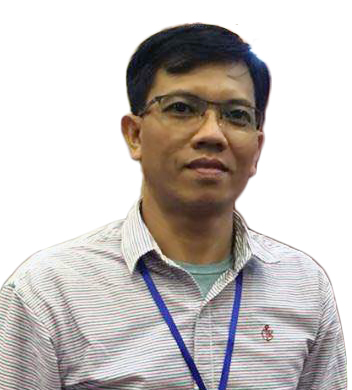 | Dr. Keuk Chan Narith MA Program Coordinator and lecturer of Applied Linguistics and Teaching Methodology
Institute of Foreign Languages (IFL)
Cambodia | Sponsored by: 
|
Main Conference Featured Presentation
Communities of practice and ELT teacher research in Cambodia
This paper reports a study investigating teachers’ beliefs and practices of language learner autonomy (LA) in the Cambodian ELT context in one leading tertiary ELT institution in Phnom Penh. The data were garnered from the lecturers’ responses to the questionnaires and the follow-up email interviews and also from their contributions to professional development workshops, adapted from Borg and Al-Busaidi (2012). The analysis reveals a notion of LA perceived by Cambodian ELT professionals and a common practice of LA within their own classrooms. This presentation also includes constraints of implementing LA and factors to promote LA viewed by the participants. The paper will conclude with the participants’ strategic planning as action research for further promoting LA in their own classrooms. The authors argue that if the aim of tertiary ELT institutions is to promote LA, an appropriate conceptualisation of LA is helpful for developing and promoting language learner autonomy widely.
Dr. Keuk Chan Narith is an MA Program Coordinator and lecturer of Applied Linguistics and Teaching Methodology at the Institute of Foreign Languages. He obtains his PhD from Macquarie University, Australia, in 2015, an MA in English Language and Literature Teaching from Ateneo de Manila University, Philippines, in 2006, and a Graduate Diploma in Applied Linguistics from RELC, Singapore, 2000. His research interests include the variety of English used in contemporary Cambodia, the study of English language teachers and English language teaching education in an EFL context, and ELT teacher research.
| Plenary Speaker | | |
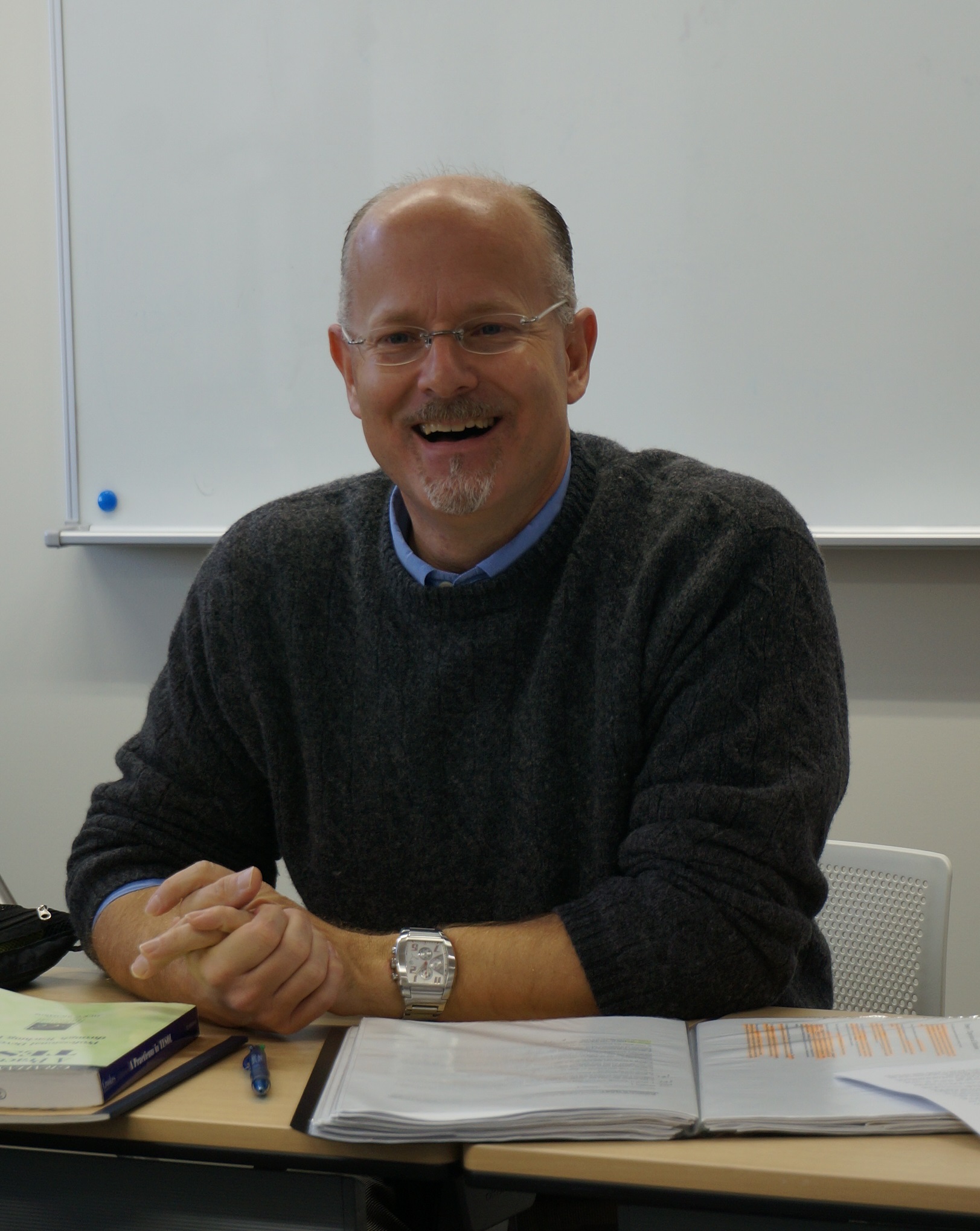 | Dr. Richmond Stroupe Chair of the Master’s Program in International Language
Education: TESOL
Soka University
Japan | Sponsored by: 
|
Main Conference Featured Presentation
Preparing learners for the global community: What teachers can do every day
As part of the professional global community, our learners will be required to be autonomous and confident and to be able to think critically. Our responsibility as educators is to help our learners develop these qualities by providing appropriate scaffolding so that they can engage in a cycle of goal setting, achievement, reflection, analysis and confidence building. Serving as guidelines for novice teachers, and reminders for more experienced teachers, this presentation consists of simple strategies and effective suggestions that any teacher can use on a daily basis within any curriculum with students at any level to help them achieve the skills necessary for success within the global community.
Dr. Richmond Stroupe has worked with university and professional language learners from Asia since 1989. He received his Bachelor of Arts from Wake Forest University (USA) and has a Master’s of Science from Florida State University (USA). He received a PhD in International Comparative Education (Administrative Policy and Planning) from the University of Southern California (USA).
Richmond is currently the Chair of the Master’s Program in International Language Education: TESOL at Soka University, Japan. He is professionally active in Japan, as the Vice President of the Japan Association for Language Teaching (JALT), with TESOL International Association in the United States through involvement in various committees, working groups and task forces, and in Cambodia with CamTESOL, as a member of the international mentor group, the Conference Planning Committee, and the Advisory Board of the IDP Education sponsored Language Education in Asia publication, an internationally peer-reviewed online journal focusing on language education research and practice in the region.
He actively conducts workshops, publishes and presents on professional activities and research projects, which include the use of international standards as internal evaluative tools, teacher collaboration, developing learner autonomy, and participatory management in educational administration. His research interests also include teacher education practices, curriculum and professional development, and developing learners’ critical thinking skills.